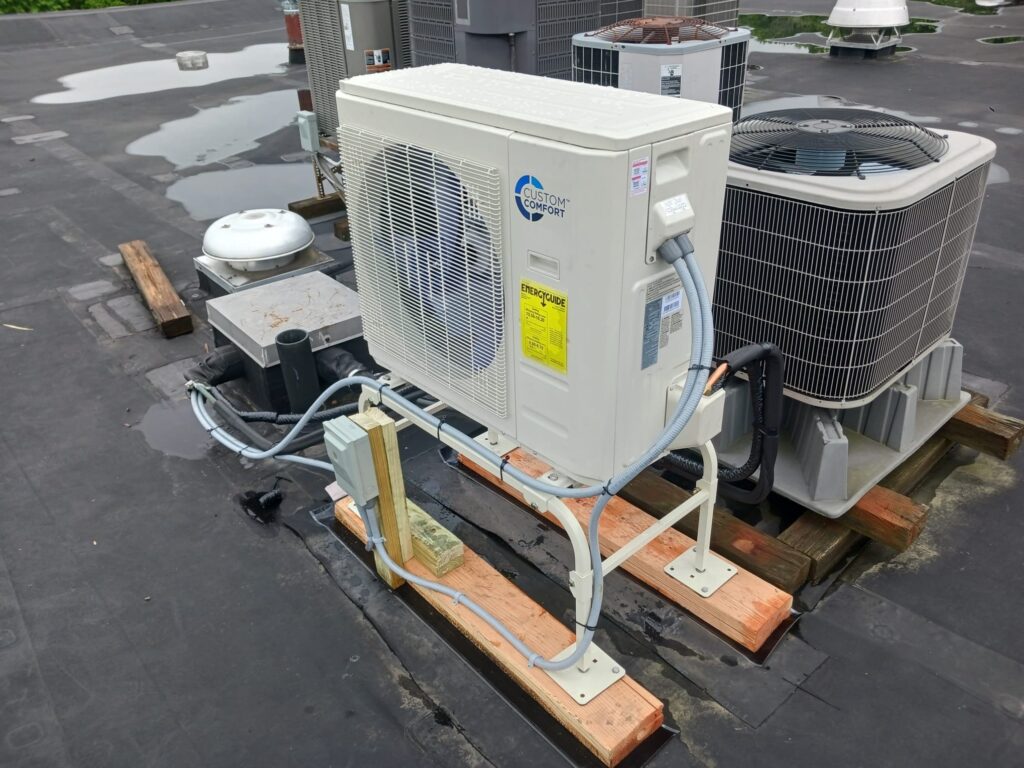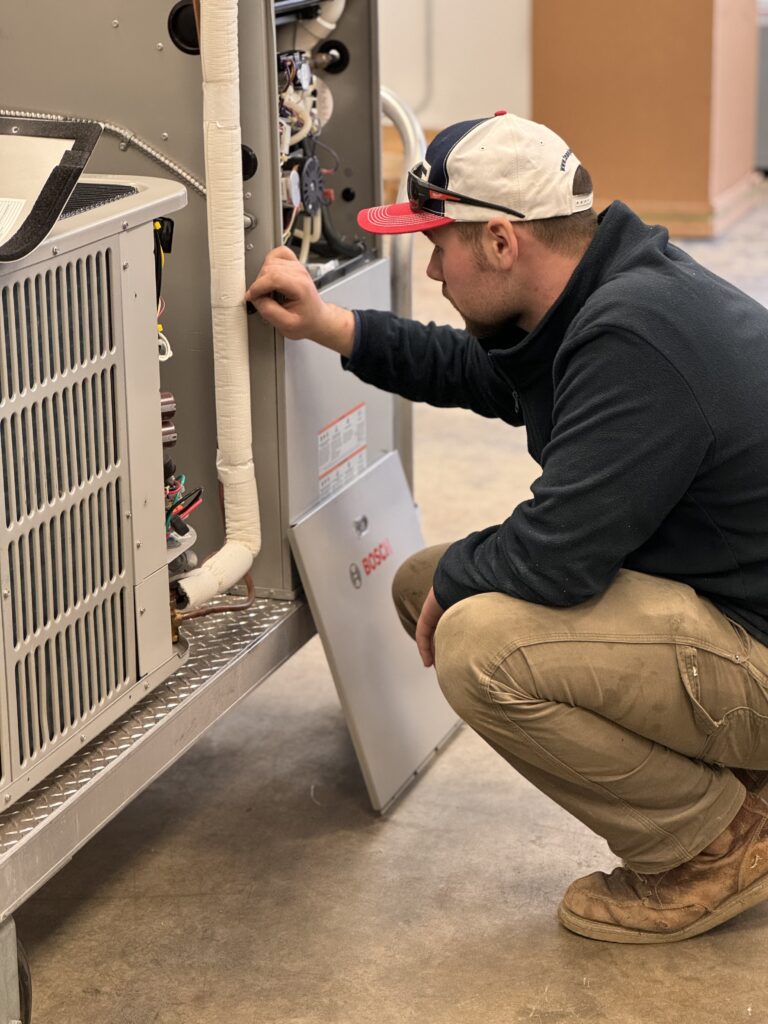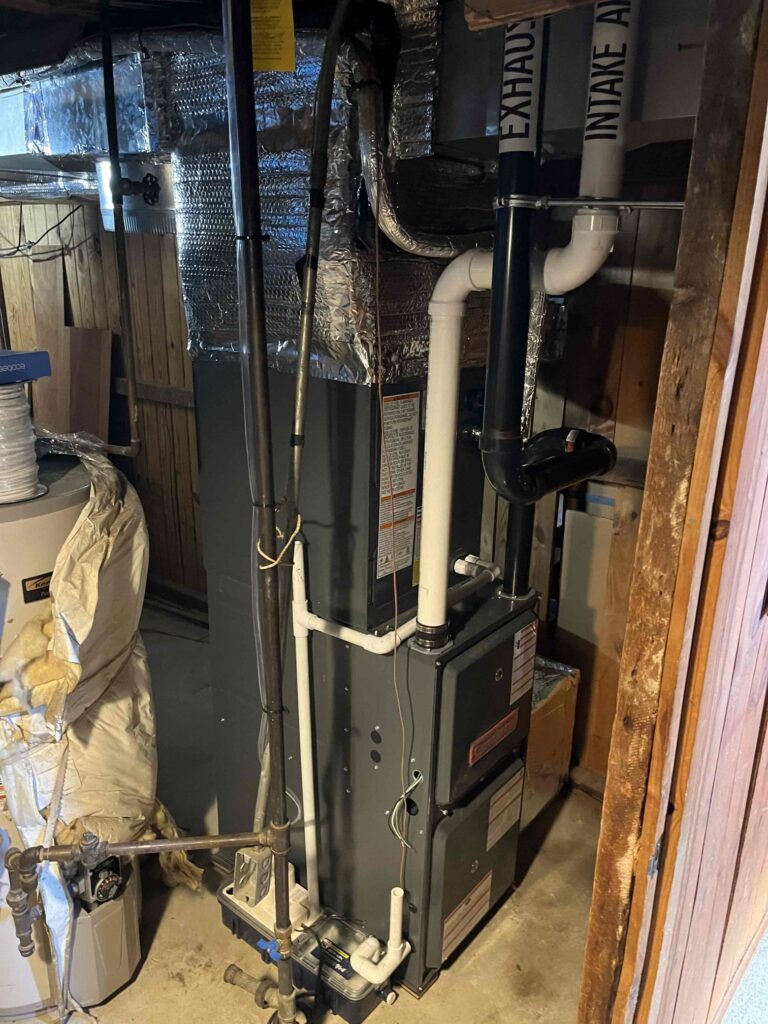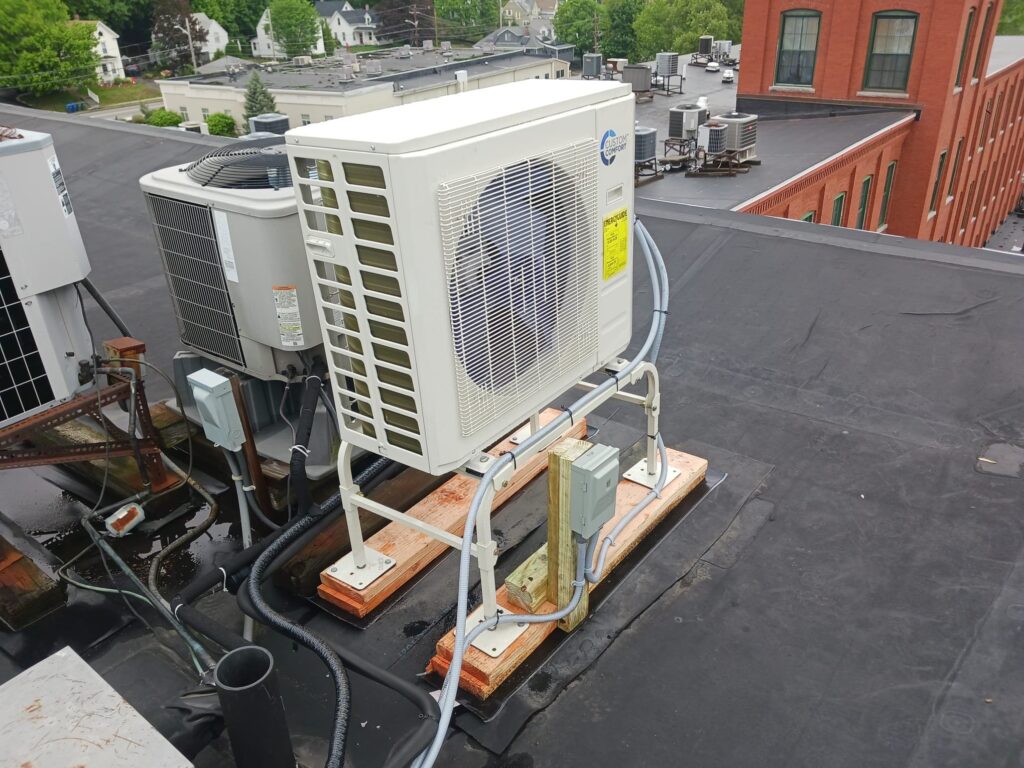Table of Contents
ToggleWhen Your Air Conditioner Stops Working: 7 Quick Fixes Massachusetts Homeowners Can Try
We’re about to experience our August heat wave…so picture this: temperatures soar to record highs across Massachusetts, and suddenly your air conditioner decides to call it quits. While your first instinct might be to immediately call for professional help, there are several troubleshooting steps you can take that might solve the problem without waiting for a technician.
Our HVAC service techs at Endless Energy have responded to countless emergency calls just this summer, and we’ve noticed that many air conditioning problems stem from surprisingly simple issues. Sometimes a five-minute check can get your system running again, saving you both time and money on unnecessary service visits.
Before you reach for your phone, here are seven essential things every homeowner should examine when their AC stops working.
Start with the Thermostat Settings
While it might seem too basic to mention, thermostat issues account for more service calls than you’d expect. Small children, houseguests, or accidental bumps can easily change settings without anyone noticing.
First thing – walk over and actually look at what your thermostat says. Is it set to “Cool”? Or did someone bump it to “Heat” or turn it off completely? Happens more than you’d think, especially with kids around.
Here’s what you want to see: the temperature you’ve set should be lower than what it actually is in your house right now. If you’ve got it set to 72 and it’s 71 inside, well, your AC isn’t going to kick on.
Got one of those fancy programmable ones? Sometimes the schedule gets wonky. Just put it on manual for now and see what happens.
And if the screen is totally dead? Either the batteries died or something’s wrong with the power to it.
Inspect Your Electrical Panel
Power surges during summer storms frequently trip circuit breakers, particularly those connected to air conditioning equipment. Your AC system might use multiple breakers – one for the outdoor condenser unit and another for the indoor air handler.
Walk to your electrical panel and scan for any switches that appear to be in the middle position or look different from the others. Reset any tripped breakers by pushing them fully to the “off” position first, then switching them back to “on.”
However, if a breaker trips again immediately after resetting, stop there. This indicates a more serious electrical issue that requires professional diagnosis.
Examine the Air Filter Condition
Restricted airflow from a dirty filter puts tremendous strain on your cooling system. When filters become too clogged, modern air conditioners will actually shut down to protect their internal components from damage.
Remove your current filter and hold it up to the light. If you can’t see through it clearly, or if it appears gray and dusty, replacement is overdue. Most Massachusetts homes benefit from changing filters every 30-90 days during peak usage periods.
When selecting new filters, MERV ratings between 8-11 typically provide excellent filtration without restricting airflow too much for residential systems.
Check the Outdoor Condenser Unit
Your outdoor unit works hard during hot weather, and several visible problems can develop. Walk outside and observe whether the fan is spinning and listen for any unusual grinding or squealing sounds.
Ice formation on the outdoor coils, even during hot weather, signals a serious problem. If you discover ice buildup, turn off your system completely and allow several hours for everything to thaw. You can restart once all ice has melted, but if freezing occurs again, this indicates refrigerant loss or airflow restrictions that need professional attention.
Also verify that the area around your outdoor unit stays clear of debris, vegetation, or other obstructions that could block airflow.
Look for Water Issues Indoors
Most modern air conditioning systems include safety switches that automatically shut down operation when water drainage problems develop. These switches prevent water damage to your home by stopping the system before overflow occurs.
Check around your indoor air handler, furnace area, or basement unit for signs of standing water, wet floors, or activated float switches. Some units have indicator lights that blink when drainage issues trigger safety shutdowns.
Clogged condensate drains are common during humid Massachusetts summers, but they’re usually straightforward for HVAC professionals to clear quickly.
Troubleshoot Cooling Performance Problems
Sometimes your system runs continuously but fails to produce cool air. You might hear the indoor blower operating normally while warm air flows from your vents.
When you’re dealing with this situation, you’re likely looking at problems with the outdoor unit – maybe a blown capacitor, refrigerant running low, or compressor trouble. Here’s the thing: these aren’t weekend DIY projects. Working with electrical components and refrigerant can be dangerous, and frankly, most homeowners don’t have the right tools anyway.
But here’s some good news – most of these issues can be fixed in one trip by someone who knows what they’re doing.
Time to Call the Pros? Here’s When
Look, if you’ve gone through this whole list and your AC is still giving you grief, don’t beat yourself up about it. Some problems just need the right person with the right equipment. We’re talking specialized gauges, electrical meters, refrigerant recovery tools – stuff that doesn’t exactly live in most people’s garages.
Our crew here in Massachusetts has been doing this long enough to know that summer AC emergencies can’t wait. We show up, figure out what’s wrong, tell you straight what it’ll take to fix it, and get your house cool again. No runaround, no trying to sell you things you don’t need.
Want to get your AC back up and running? Give us a shout – we’ve got Massachusetts covered.
Don’t Wait for Your AC to Quit on You
You know what’s better than dealing with a broken air conditioner in July? Never having it break in the first place. We’ve been doing tune-ups for years, and it’s amazing what we catch before it turns into a real headache.
Right now we’re running a deal for folks who haven’t used us before – $89 gets you a full seasonal checkup. It’s worth it just for the peace of mind, especially with how brutal Massachusetts summers have been getting. We’ve also got yearly maintenance plans if you want to set it and forget it.
Think about it this way – a little maintenance now beats sweating through a heat wave later. Plus, your system will run better and your electric bills won’t be quite so painful.






